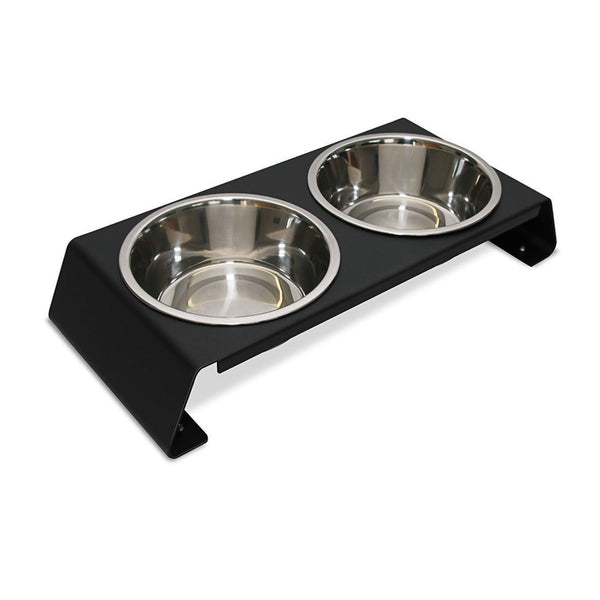Dogs bring endless amounts of joy and happiness to the lives of their human counterparts. Commonly, when people encounter obstacles or experience difficult periods in their lives, their dogs are immediately there to provide them with emotional comfort and support. This is just one of the many ways dogs are such positive forces in our day-to-day lives.
Nowadays, there are many more conversations being had about the importance of mental health, with the internet providing wonderful resources and help for the millions of people worldwide who have struggled with mental health problems. However, a much less talked about subject is dog mental health. You've probably heard someone talk about how many similarities they share with their four-legged friends. Unsurprisingly so, a lot of that is true when it comes to mental health as well.
Dogs experience emotions, such as happiness and sadness, very similar to the way we humans do. Not only that, but dogs' mental health can fluctuate- just like humans' mental health can. The difference is that dogs cannot vocalize their current feelings in a language we understand, meaning there is no way for our dogs to actually tell us if they are feeling unwell. That said, it's critical that dog owners know how to prioritize their beloved pups’ mental health to keep them happy and healthy.
Signs of Mental Health Issues in Dogs
Before discussing ways dog owners can go about improving their dog’s mental health, it's important to know how to recognize the signs that your dog is struggling mentally.
First and foremost, one of the most telling signs that there may be a problem is behavioral changes. You know your dog best, and every dog has their own unique personality. That said, something you should always look out for is personality changes. For example, your normally energetic dog starts suddenly behaving as if they have no energy or doesn't display interest in doing anything.
Some more drastic changes to a dog’s personality can indicate there may be a more serious shift in their mental state. Coming home to your couch cushions or toilet paper being torn up is something many dog owners have experienced. However, it is vital to know that this bad behavior may indeed be a sign that there is something seriously wrong.
Anxiety in Dogs
One of the most discussed mental health conditions that affect dogs is anxiety. Anxiety is a mental health condition that is characterized by feelings of panic and tension that can severely impact your day-to-day functioning. In dogs, anxiety typically manifests in a couple of ways. Destructive behavior, severe attachment, and anti-social behavior can all be signs that your dog is anxious.
There are many possible causes of dog anxiety, and there are specific factors that may make your pup more likely to develop anxiety now or later on in life. A dog's environment- or previous living environment- can be one of the biggest influences on their personality. For instance, it is typically more common to see separation anxiety in dogs that were previously neglected or abandoned. Anxiety can cause very severe emotional distress in animals, so learning methods to manage your dog's anxiety is vital.
How to Improve Your Dog’s Mental Health
If you notice a change in your dog's mental health or if you would like to prevent your dog from experiencing these struggles in the future, here are some things positive you can do to put your dog's health first.

Exercise Your Dog
There have been many studies showing the positive effects of exercise- on both humans and dogs. When you regularly exercise your dog, you are creating a routine that provides them with the mental and physical stimulation they enjoy. Many dogs love getting a lot of exercise, so allowing your dog that time to get out and have fun running around in the fresh will likely lift their mood too. Taking a walk outside or playing fetch with your dog is a great way to start an exercise routine.
Feed Your Dog a Healthy Diet
Creating a nutritious diet for your dog is one easy way to preserve their physical and mental health. When your dog is feeling great physically, you will likely see a positive difference in their overall mental well-being.
Give Your Dog a Safe Space
Providing a comfortable environment where your dog can relax and de-stress has many benefits. Most notably, dogs need an environment where they can feel safe and enjoy some time to themselves. While many dogs are very social, being around too many people or in a very busy environment can quickly become overwhelming for a dog. It is a good idea to provide your pup with their own special space, such as a dog crate, where they can retreat to in a case like this. For anxious dogs that display a lot of destructive tendencies, providing them with a calm environment is essential for managing this behavior.
Take Your Dog to the Vet
Scheduling regular check-ups at the veterinarian for your dog is a great way to ensure that they are mentally and physically healthy. If your dog does have an undetected condition or illness, this is something that could cause them emotional distress. Remaining up-to-date with your dog’s veterinary appointments increases the likelihood that any health problem is detected early on.
Caring for our own mental health is of paramount importance, and we hope these tips have helped you learn how to care for the mental health of your four-legged friends too.














